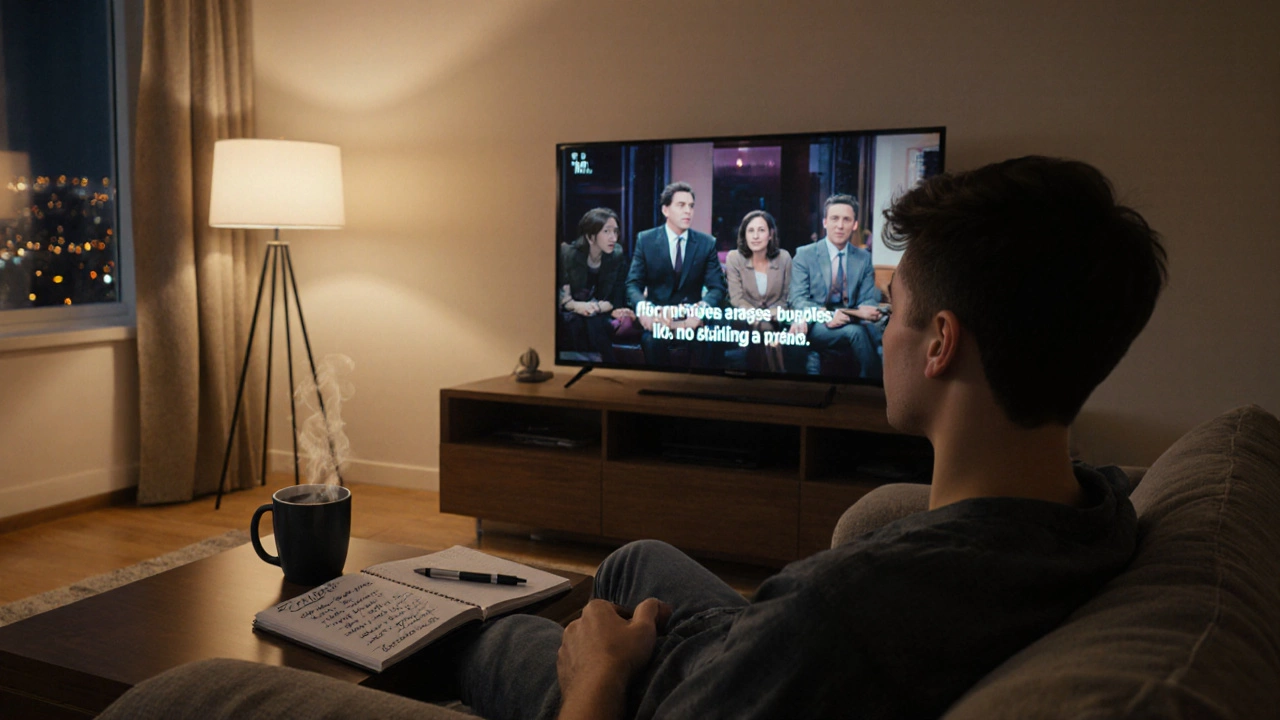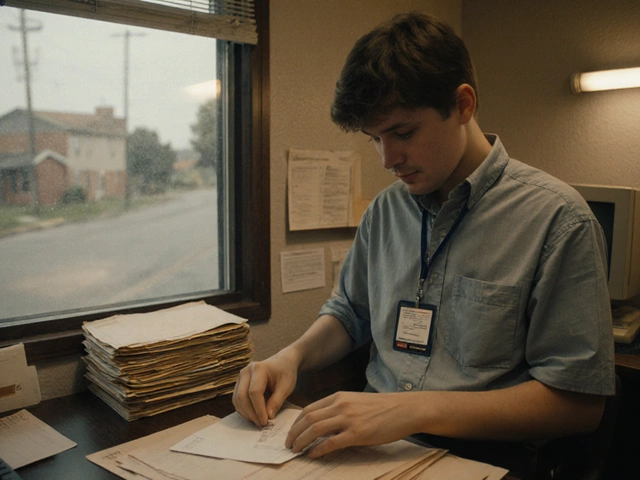Learn English with TV: How Watching Shows Builds Real Fluency
When you learn English with TV, using television shows and movies as a tool to absorb language naturally through context, repetition, and real-life dialogue. Also known as immersive language learning, it’s how millions of non-native speakers actually start thinking in English—without flashcards or grammar drills. This isn’t about passive watching. It’s about active listening: catching how people really speak, not how textbooks say they should. You pick up phrasal verbs like "catch up" or "back out" not from a list, but from seeing them used in arguments, jokes, or office chats. Your brain starts predicting what comes next—not because you studied it, but because you’ve heard it enough times.
What makes TV so powerful is that it layers English fluency, the ability to understand and respond in English without translating in your head with English learning through media, using films, series, news, and YouTube as structured, engaging input sources. You’re not just hearing words—you’re seeing facial expressions, body language, and tone. That’s why someone who’s watched 50 episodes of Friends understands sarcasm better than someone who aced a TOEFL test. And it’s why apps like Duolingo, while helpful for basics, can’t replace the messy, real rhythm of human speech you get from a good drama or comedy.
People think you need to be advanced to use TV for learning. That’s a myth. Start with kids’ shows like Peppa Pig—slow speech, clear pronunciation, simple sentences. Then move to sitcoms with subtitles. Watch the same scene three times: first with English subs, then without, then just listening. You’ll be shocked at how much you catch the third time. This method works for busy people too—you don’t need hours. Ten minutes a day, consistently, beats two hours once a week. Your brain learns patterns like a muscle: use it daily, even briefly, and it gets stronger.
What you’ll find below are real stories, tools, and methods from people who went from struggling to speaking confidently—all by turning on the TV. Some used Netflix. Others watched YouTube vloggers or BBC News. A few even recorded themselves repeating lines. There’s no one right way. But there is a proven path: listen often, stay curious, and don’t wait until you’re "ready." The show doesn’t care if you make mistakes. And neither should you.

Best TV Series to Watch for Boosting Your English Skills
Discover the best TV series to watch for improving English, learn how to pick shows by level, and get a step‑by‑step plan to turn binge‑watching into effective language practice.



